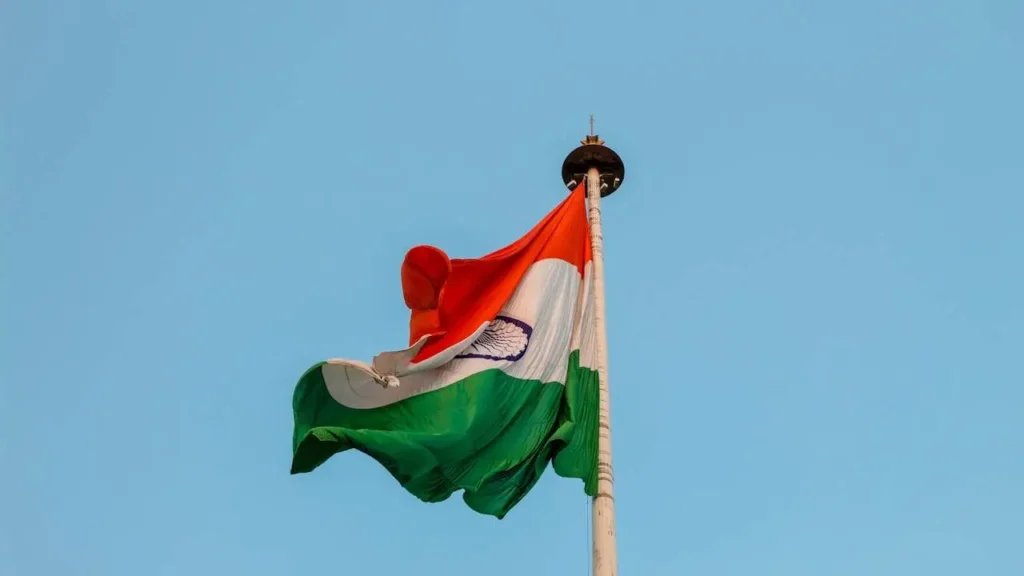As India prepares to celebrate its 78th Independence Day on August 15, 2024, with nationwide festivities marking the end of nearly 200 years of British colonial rule, the spirit was dampened somewhat by a widespread hacktivism attack targeting the Independence Day cybersecurity measures.
The day, which honors the sacrifices of those who fought for India’s freedom and reflects the government’s vision of a developed nation by 2047, has become a prime target for cyberattacks. This year, both India and Pakistan have seen a troubling surge in cyber incidents, revealing the darker side of digital activism.
The theme for this year’s Independence Day, ‘Viksit Bharat,’ highlights the country’s ambitious plans to achieve developed status by the centennial of its independence. However, amid the celebrations, the digital infrastructure of both India and Pakistan is under assault.
Hacktivist groups, exploiting the festive atmosphere, have launched a series of coordinated cyberattacks aimed at disrupting and defacing online platforms, stealing data, and spreading propaganda.
The Great Independence Day Cybersecurity Threat
Cyble Vision excerpt on hacktivism incidents targeting India (Source: Cyble)Cybersecurity firm Cyble has reported a significant uptick in hacktivist activities coinciding with Independence Day celebrations. According to the new report, the first signs of these attacks emerged at midnight on August 14, with various groups claiming responsibility for targeting over 100 websites. These attacks range from Distributed Denial of Service (DDoS) to website defacements and data leaks, reflecting an ongoing threat targeting Independence Day cybersecurity.
Several hacktivist groups have recently gained attention for their Independence Day cyberattacks. Team Insane Pakistan, a pro-Pakistan faction, launched the ‘#OpIndia’ campaign, focusing on defacing Indian websites and breaching data.
Team Insane Pakistan announces the OpIndia campaign (Source: Cyble)Similarly, Team Azrael – Angel of Death, a pro-Palestinian group, has targeted a Rajasthan state government department’s mail server, posting videos of compromised email panels and phishing attempts. They also struck local news channels in Punjab and a defense sector public unit.
SILENT CYBER FORCE has attacked 25 Indian websites, leaking login credentials for unauthorized access. Moroccan Soldiers and the Moroccan Black Cyber Army have defaced numerous Indian websites across the education, travel, and entertainment sectors.
Additionally, THE ANONYMOUS BANGLADESH, a pro-Bangladeshi group, breached an Indian Law Association, granting illicit backdoor access to other attackers.
The Massive Retaliatory Operation and Previous Cybersecurity Instances
In response to these Independence Day cybersecurity threats, pro-Israeli and pro-Indian hacktivist groups are gearing up for retaliation. Anonymous Israel, breaking a year-long silence since April 2023, has announced ‘#PAYBACK 2024’. This retaliatory campaign aims to target entities in Bangladesh, Pakistan, Indonesia, Malaysia, Morocco, and Palestine, in collaboration with pro-Indian hacktivists.
Pro-Israeli hacktivist groups announce the retaliatory campaign ‘PAYBACK 2024’ (Source” Cyble)Hacktivist Escalation Part of Broader Trend
The escalation of hacktivist activities reflects a broader trend observed in recent years. For instance, last year’s Independence Day saw thousands of Indian websites targeted as part of a coordinated campaign. The methods used included DDoS attacks, website defacements, and user account takeovers, demonstrating the widespread nature of these cyber operations.
The history of hacktivism on Independence Day is marked by recurring themes of defacement and data breaches. In 2022, for example, the campaign known as OpsPatuk, initiated by DragonForce Malaysia, was a prominent example. Although DragonForce Malaysia distanced itself from the campaign in June 2022, the hacktivist activities continued under the name OpIndia.
On February 5, 2023, Team Insane PK revived the OpIndia campaign on Kashmir Solidarity Day, targeting Indian websites and leaking sensitive documents. Team Insane PK, known for its wide-reaching cyberattacks, has also targeted government websites in Pakistan, justifying their actions with religious motives.
In March 2023, Mysterious Team Bangladesh launched ‘Operation Payback,’ targeting Indian websites and leaking files from previous security breaches. This group, active since 2012, has been involved in various campaigns, including OpIndia, OpsPatuk, and OpIsrael. Their activities illustrate the long-standing nature of cyber conflicts in the region.
For both India and Pakistan, the Independence Day cyberattacks highlight the geopolitical nature of cybersecurity actors, including those who hold grudges against nations and those attempting to spread propaganda. With each year bringing new tactics and more aggressive campaigns, the focus on cybersecurity must remain a priority.
Source: Read More



